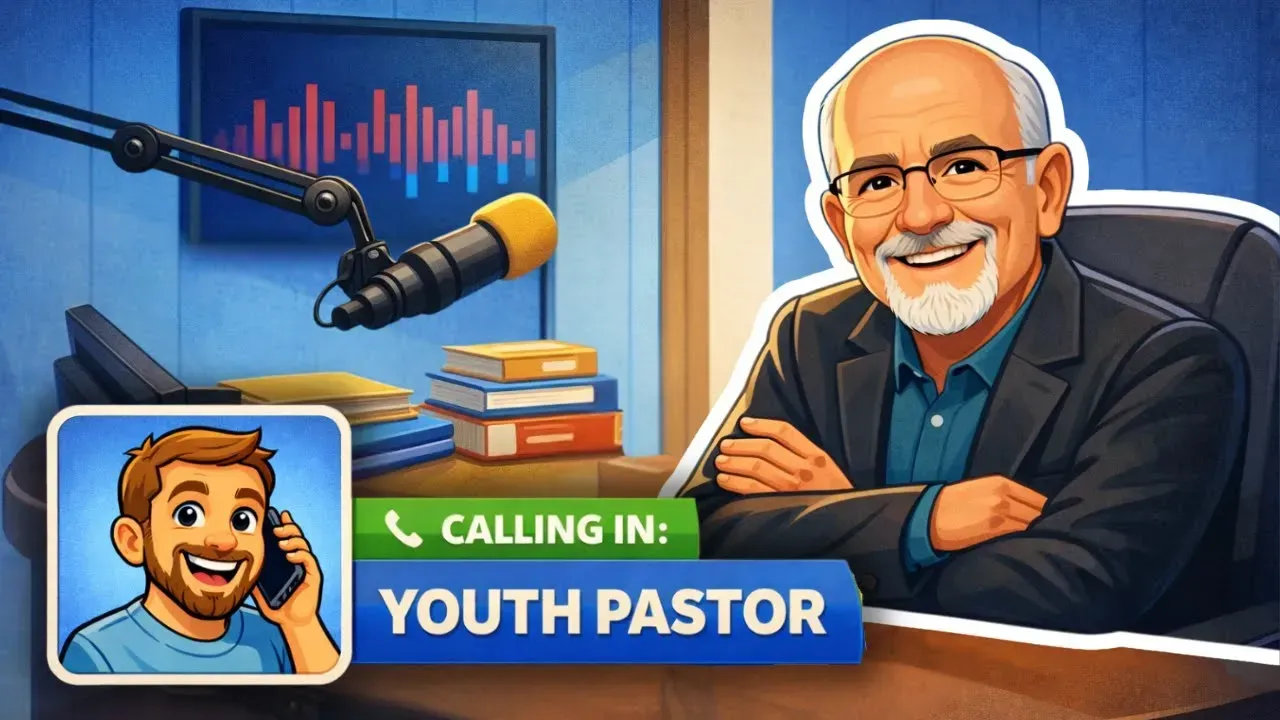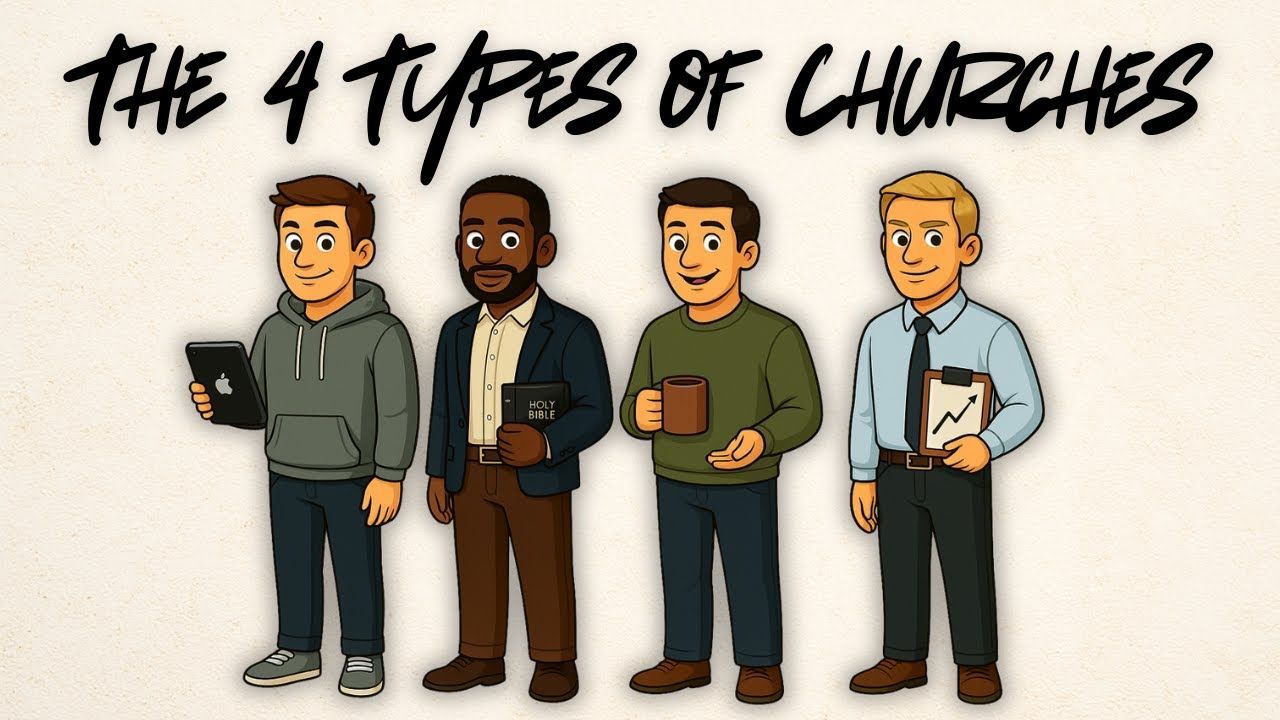The Secrets to a Successful Youth Ministry Fundraiser | BTYR Podcast • Ep 67
Beyond Bake Sales: Rethinking Fundraising in Youth Ministry
Welcome to the Beyond the Youth Room podcast! If you want to watch the video, click
here.
Today, Ryne and Keith dive into a crucial aspect of youth ministry: fundraising. It's a topic that can evoke a range of emotions, from excitement to dread. Whether you're blessed with a robust budget or constantly scraping by, this episode offers valuable insights and practical strategies to revolutionize your fundraising approach.
Ryne shares a powerful anecdote about his church's annual "Super Full Sunday" fundraiser. This creative event, held on Super Bowl Sunday, involves auctioning off food items typically enjoyed at watch parties. The result? A staggering $25,000 raised in just a couple of hours! Ryne emphasizes the importance of collaboration, noting that combining the efforts of the kids' and student ministries broadened their reach and ultimately increased their fundraising success. He's found that this one large ask per year is far more effective than constant smaller requests.
Keith, who also has extensive experience fundraising for a non-profit, discusses the common struggles of securing adequate funding. He recalls a time when his organization faced significant financial challenges, prompting them to earnestly seek God's direction. This experience led him to explore various fundraising avenues, including events, grants, individual donations, church support, and business partnerships. He highlights the value of starting small, suggesting the "dessert social" as an effective initial step. This involves inviting a select group of individuals to an intimate gathering where you can share your ministry's vision and invite them to partner with you financially.
A key takeaway from this discussion is the importance of reframing your perspective on fundraising. Keith shares how the book "The God Ask" transformed his approach. Instead of viewing fundraising as begging for handouts, he now sees it as inviting others to join in God's work. It's about presenting the ministry's mission and asking potential donors to prayerfully consider partnering financially. This shift in mindset can alleviate the pressure and awkwardness often associated with fundraising, making it a more natural and fulfilling experience.
Ryne expands on his church's "Super Full Sunday" success, explaining that the shift from a silent auction to a live auction significantly boosted their earnings. He emphasizes the importance of clearly articulating the specific needs and goals of your fundraising efforts. Donors are more likely to contribute when they understand the direct impact their generosity will have on the ministry and the students.
Keith stresses the need for convenient giving options. Offer a variety of methods, including online platforms, mobile giving, and traditional options like checks and cash. The easier it is for people to give, the more likely they are to participate. He also suggests fostering a sense of community and ownership around the fundraising initiative. When people feel connected to the mission, they are more inclined to contribute.
The conversation shifts to the concept of "transformational giving" versus "transactional giving." Keith explains that transformational giving is driven by a belief in the mission, while transactional giving focuses on immediate returns (like buying a donut). He shares an example of raising $10,000 through dessert socials and then leveraging that success to host a banquet that generated an additional $10,000 in donations and monthly support. He emphasizes that building relationships and sharing the vision is far more effective than relying on bake sales or car washes.
Ryne recounts a humorous anecdote about a car wash gone wrong, highlighting the importance of planning and preparation (and sunscreen!). He then shares how a bold vision can inspire greater generosity. He explains that people are more likely to contribute to a larger campaign that already has momentum. He also emphasizes that fundraising provides an opportunity for people who may not be able to volunteer their time to still be involved in the ministry.
Both Ryne and Keith reiterate the importance of faith. They believe that if God has called you to a ministry, He will provide the necessary resources. They encourage youth leaders to focus on the vision and trust that God will supply.
Keith offers some creative fundraising ideas, such as partnering with a donor to cover the cost of t-shirts so that all sales proceeds go directly to the ministry. He also suggests having students collect donations in decorated boxes or write support letters for mission trips. He cautions against including pre-stamped envelopes in support letters, as it can be perceived as presumptuous.
Finally, Keith highlights the power of matching gifts. Securing a donor who is willing to match contributions can incentivize others to give and double the impact of their donations. He concludes by emphasizing that asking for money is not a burden, but rather an opportunity for people to exercise their gift of giving. Many people are actively seeking opportunities to support ministries they believe in.
Ryne and Keith leave listeners with a final encouragement: trust in God's provision, focus on the transformational aspect of giving, and remember that investing in God's kingdom yields eternal rewards. They encourage listeners to like, share, subscribe, and join the Beyond the Youth Room Youth Ministry Mastermind community.











